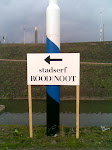Certainly, the Nietzschean tough philosophy of The Dance of Death makes better drama than the Buddhist -Christian -Swedenborgian -Schopenhaurean resignation of A DREAM PLAY. The spirit of this play, one of Strindberg’s most original, is one of resignation and longing for release from life. It is a panoramic survey of the unahppy condition of humanity where, instead of the antinomies of good-evil, purity-filth, vice-virtue working on each other for vigorous combat, they become the stifling and despairing vision that cannot accept these inescapable conditions of existence. In this play, consciousness is tormented because flowers grow out of filth, that every positive quality is involved in its negative opposite: that love brings pain, that to try to do good, like the lawyer, means being disfigured by evil, that happiness for one person is another person's misery, and so on.
And this means that, while theatrically A DREAM PLAY often is often extremely imaginative and ingenious (in its changing sets, for instance, are as important as the characters and plot) finally, its repeated message that everything good is involved in everything evil, and its episodic illustration, scene by scene, of this basically uncomplicated message, is dramatically slack: somewhat like its progeny: much of German Expressionist drama. Strindberg's movement towards spiritual resignation, in his last year of lif,e often is moving and beautiful but, as in Act III, also, of THE GHOST SONATA Strindberg surrounds this resignation with dramatically unconvincing spiritual stage effects: the flowering chrysanthemum of A DREAM PLAY and the music and pictorial effects of THE GHOST SONATA - an attempt to locate the ineffable by visual and aural association.
However, A DREAM PLAY is a striking achievement. Though Strindberg’s themes are Romantic and backward-looking, his stage methods, in his last plays, are extraordinarily innovative. (This is not a paradox; many of the stunning new theatrical effects of Reinhardt, etc., were to illustrate quite reactionary, even medieval, themes). Theatrical and cinematic revolutions need not always be part of a progressive agenda. Think of D. W. Griffith's Birth of a Nation or Leni Riefenstahl’s Triumph of the Will.
In Strindberg's last works, anyhow, one finds this combination of backward looking philosophy, a philosophy in retreat from the world, with forward-looking theatrical effects.

.jpg)

